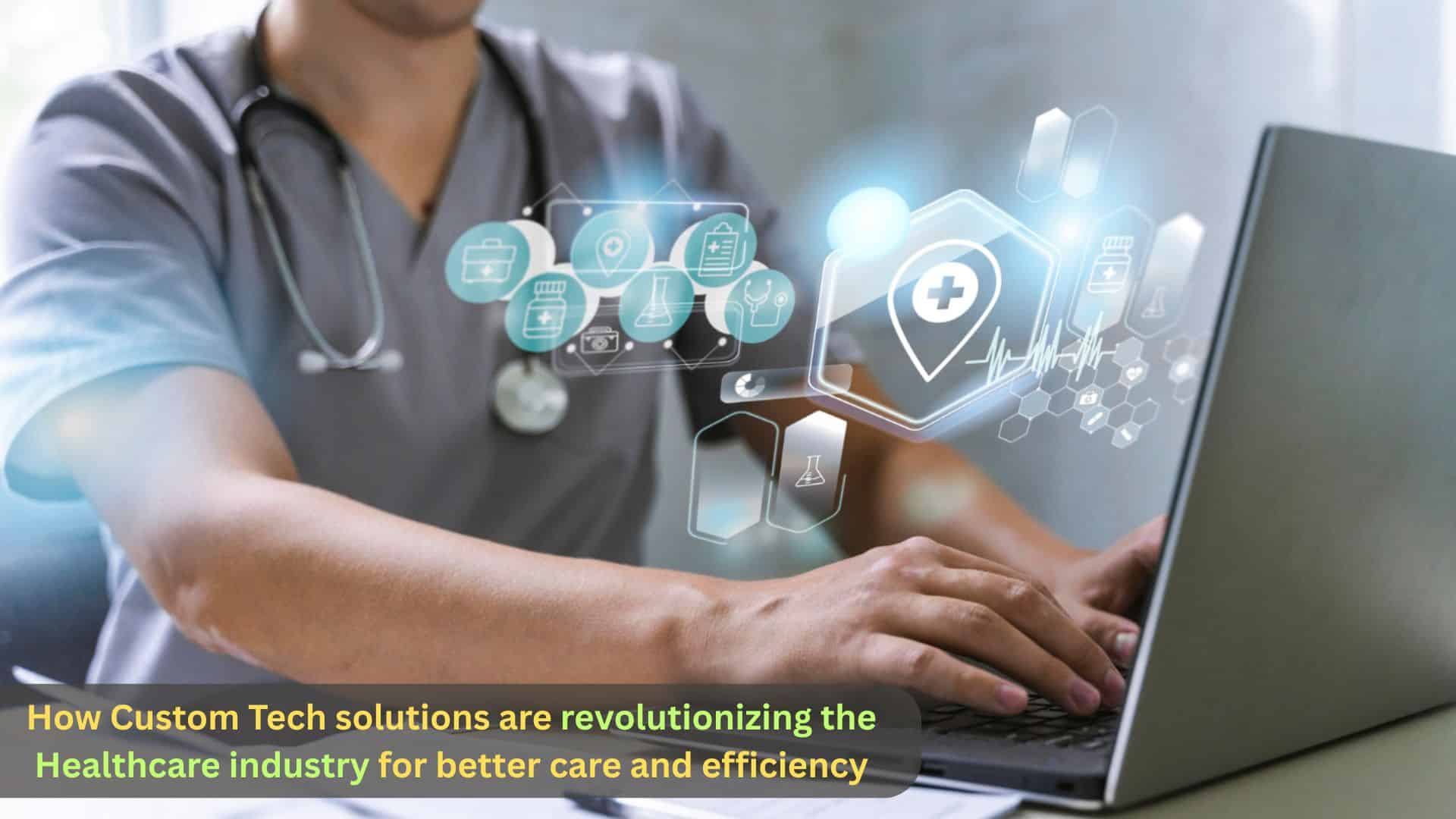In today’s fast-moving digital world, the healthcare industry is undergoing a massive transformation, powered by custom tech solutions. Off-the-shelf software often falls short when it comes to the unique needs of hospitals, clinics, and healthtech startups. That’s where custom-built technology steps in — driving innovation, improving patient care, automating tasks, and streamlining operations like never before.
At MAKEWAYS TECHWORKS, we’ve seen firsthand how personalized digital solutions can transform outdated healthcare practices into high-performing, smart ecosystems. Here’s a deep dive into how it’s happening.
1. Personalized Patient Portals and Mobile Health Apps
Patients today expect convenience and control over their medical data. Custom-designed patient portals and mobile apps offer secure access to health records, prescriptions, lab results, and teleconsultations. These tools are tailored to specific workflows of hospitals or individual clinics, improving both engagement and satisfaction.
Examples:
- A multi-specialty clinic uses a branded mobile app that allows patients to book appointments, receive prescriptions, and chat with doctors in real time.
- A pediatric center offers a custom portal for parents to track child vaccination history and growth milestones.
Benefits: - 24/7 access to medical info
- Reduced dependency on hospital staff
- Stronger patient-doctor communication
2. AI-Powered Diagnostics and Decision Support
Custom AI integrations into EMR (Electronic Medical Records) systems can analyze symptoms, history, and diagnostic data to assist doctors with faster and more accurate decisions. Unlike generic tools, custom AI models are trained on specific patient types, regional diseases, or even language-based nuances.
Examples:
- A hospital in a rural area builds an AI tool focused on detecting tuberculosis in early stages based on local data.
- A cardiology app uses predictive analytics to flag high-risk heart patients by evaluating lifestyle patterns and wearable data.
Benefits: - Quicker diagnosis with reduced errors
- Personalized treatment plans
- Improved clinical outcomes
3. Workflow Automation in Clinics and Hospitals
From scheduling appointments and managing inventory to automating billing and discharge processes, custom tech can handle repetitive tasks — saving time and reducing errors.
Examples:
- A hospital integrates a custom admin dashboard that tracks bed availability, schedules nursing shifts, and notifies in case of resource shortages.
- A diagnostic lab uses a custom barcode system for sample tracking and automated report delivery.
Benefits: - Higher operational efficiency
- Staff focused more on patient care
- Lower administrative costs
4. Secure, Compliant Data Management Systems
Handling sensitive patient information requires more than just password protection. Custom-built systems ensure compliance with HIPAA, GDPR, and regional healthcare data regulations while integrating advanced encryption, role-based access, and audit trails.
Examples:
- A mental wellness startup builds a custom data vault system to store patient therapy records with enhanced encryption.
- A telehealth provider uses blockchain for medical record verification between multiple clinics securely.
Benefits: - Improved data security
- Regulatory compliance
- Greater trust and credibility
5. Integration with IoT Devices and Wearables
Custom platforms that sync with health wearables, remote monitoring devices, or IoMT (Internet of Medical Things) devices offer real-time insights for proactive care. This is especially useful for chronic disease management and elderly care.
Examples:
- A diabetes management app that tracks sugar levels via Bluetooth-connected glucometers and alerts caregivers automatically.
- A smart elderly care system that sends emergency alerts if abnormal heart rate or falls are detected.
Benefits: - Continuous patient monitoring
- Better preventive care
- Real-time emergency response
6. Tailored Telemedicine Platforms for Remote Healthcare
The rise of telemedicine needs platforms that are scalable, secure, and easy to use for both patients and doctors. Custom solutions allow healthcare providers to add local languages, AI-based triage systems, appointment queues, and integrations with pharmacy/lab partners.
Examples:
- A rural health NGO creates a multilingual teleconsultation platform for underserved areas.
- An urban clinic integrates online payments, document upload, and video calling in one custom app.
Benefits: - Wider healthcare reach
- Personalized virtual care experience
- Time and cost savings for patients
7. Data-Driven Healthcare Analytics Dashboards
With custom dashboards, healthcare providers can visualize trends, monitor KPIs (Key Performance Indicators), and make better business and treatment decisions. Whether it’s predicting patient inflow or optimizing medicine stock, real-time insights matter.
Examples:
- A multi-location hospital chain uses a custom-built dashboard to compare branch performance and patient satisfaction metrics.
- A fertility center uses data trends to improve IVF success rates by analyzing treatment combinations.
Benefits: - Smarter decision-making
- Cost savings
- Improved patient experience
final thoughts
The future of healthcare is personalized — not just for patients, but also for the systems that support them. Custom tech solutions are the key to building healthcare infrastructure that is flexible, scalable, secure, and tailored to individual business goals.
At MAKEWAYS TECHWORKS, we specialize in building tailor-made digital solutions for the healthcare industry. Whether it’s custom web portals, mobile health apps, AI integrations, wearable device sync, or secure backend systems, we deliver solutions that not only meet compliance but also improve outcomes and experiences for everyone involved.
📞 Let’s innovate healthcare together.
🌐 Visit us at: www.makewaystech.com
📧 Mail us at: [email protected]
#customhealthtech #healthcareinnovation #digitalhealthsolutions #aiinhealthcare #telemedicineapp #iotinhealthcare #healthtechstartup #securepatientdata #healthcareautomation #futureofmedicine
